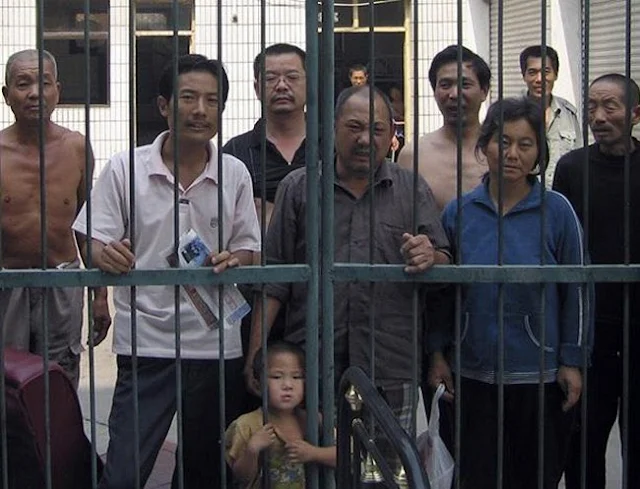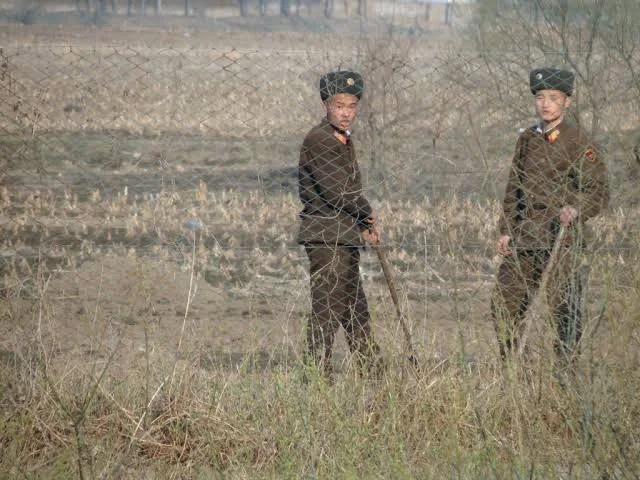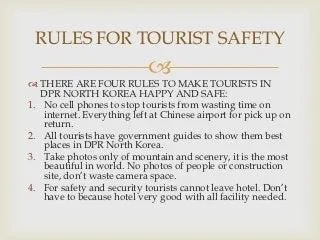Featured
- Get link
- X
- Other Apps
The Dark Realities of North Korea: 10 Disturbing Facts
1. Necrocracy: A Dead Man as President
At the helm of North Korea’s leadership sits Kim Il Sung, the country’s deceased founder and eternal president. Despite his passing, Kim Il Sung retains the highest position in the country, embodying the concept of a necrocracy, where the dead govern the living. This unique form of governance epitomizes the cult-like reverence for the Kim dynasty, perpetuating their authority beyond the grave.
2. Generational Punishment: Collective Accountability
In North Korea, the consequences of committing a crime extend beyond the individual perpetrator. The regime implements a policy of generational punishment, wherein three generations of a family – grandparents, parents, and children – are held accountable for one person’s transgressions. This ruthless tactic instills fear and conformity, ensuring compliance through collective suffering.
3. Currency Restrictions for Tourists
Visitors to North Korea encounter stringent regulations regarding currency usage. Tourists are prohibited from using the local national currency, the North Korean won, in transactions. Instead, they must rely on foreign currencies such as euros, yuan, South Korean won, or US dollars. This restriction isolates tourists from the everyday economic realities faced by North Korean citizens and reinforces the regime’s control over financial interactions.
4. Sham Elections: The Illusion of Democracy
Despite the façade of democratic processes, elections in North Korea are a charade orchestrated to maintain the regime’s grip on power. With only one name – that of Kim Jong Un – appearing on the ballot, voters face the illusion of choice. Any dissent or refusal to participate is met with severe repercussions, including loss of livelihood and increased surveillance, perpetuating the regime’s authoritarian rule.
5. Blasphemy Laws: Worshiping the Kim Dynasty
Criticism or disrespect towards the Kim family is tantamount to blasphemy in North Korea, punishable by severe measures. The regime enforces a cult of personality surrounding the ruling dynasty, fostering unwavering loyalty and devotion among citizens. Any deviation from this mandated reverence is swiftly met with harsh consequences, reinforcing the regime’s totalitarian control over thought and expression.
6. Restricted Travel: A Nation Imprisoned
The right to travel freely is a luxury denied to North Korean citizens, who require government permission to leave the country. Attempting to flee without authorization risks imprisonment in labor camps or execution, highlighting the regime’s ironclad grip on its populace. This restriction isolates North Koreans from the outside world, perpetuating the regime’s propaganda and preventing exposure to alternative ideologies.
7. Tourist Surveillance and Control
Tourists visiting North Korea are subjected to stringent regulations and surveillance throughout their stay. From mandatory guided tours to restrictions on photography and interactions with locals, visitors are closely monitored to prevent unauthorized access or exposure to dissenting views. The regime tightly controls the tourist experience, presenting a sanitized version of reality that obscures the harsh truths of life under its rule.
8. Kim Il Sung Calendar: A Cult of Personality
North Korea’s calendar revolves around the birth year of Kim Il Sung, prioritizing the cult of personality surrounding the regime’s founder over traditional markers of time. This symbolic gesture reinforces the regime’s narrative of eternal leadership and perpetuates the deification of the Kim dynasty, shaping the collective consciousness of North Korean society.
9. Mandatory Military Service
Military service is compulsory for both men and women in North Korea, with men serving for 10 years and women for seven years. This extended conscription period serves multiple purposes, including indoctrination into the regime’s ideology, bolstering military capabilities, and maintaining social control. The militarization of society reinforces the regime’s authority and readiness to quell dissent through force if necessary.
10. Haircut Regulations and Clothing Restrictions
Even personal appearance is subject to strict regulations in North Korea. The regime dictates approved hairstyles for men and women, with specific length requirements and style limitations enforced through state-sanctioned barber shops. Additionally, clothing choices are restricted, with prohibitions on wearing jeans and mandates for unmarried women to maintain short hair. These regulations serve as tools of social control, reinforcing conformity and obedience to the regime’s dictates.
The harsh realities of life in North Korea are characterized by oppressive governance, pervasive surveillance, and strict control over every aspect of citizens’ lives. From the perpetuation of a necrocratic regime to draconian laws enforcing conformity and obedience, the regime’s grip on power is unyielding. By shedding light on these 10 disturbing facts, we strive to unveil the truth behind the veil of secrecy shrouding North Korea and advocate for global awareness and action to address the ongoing human rights abuses perpetrated by its leadership.
Popular Posts

Who’s Nailin’ Paylin?
- Get link
- X
- Other Apps

A selection of Kenyan women
- Get link
- X
- Other Apps













Comments